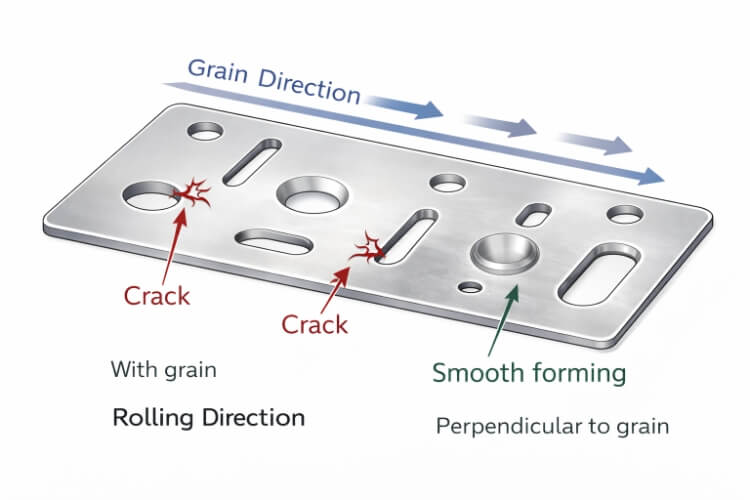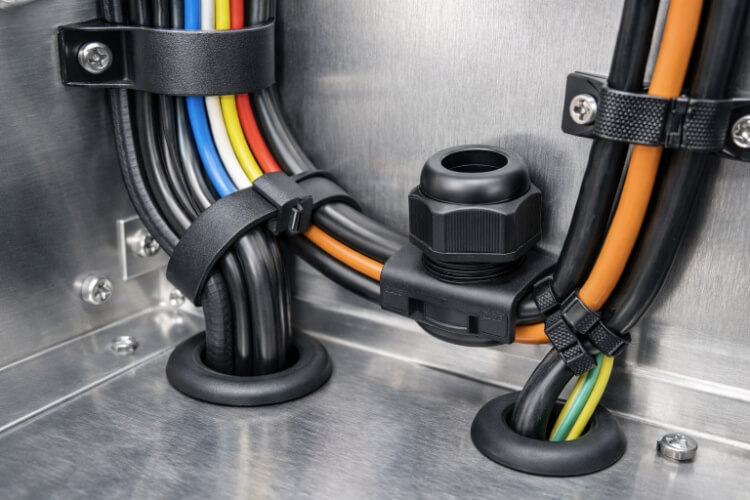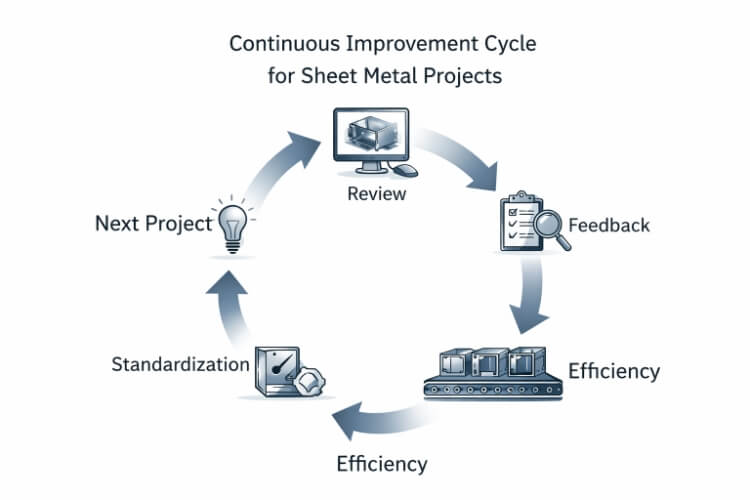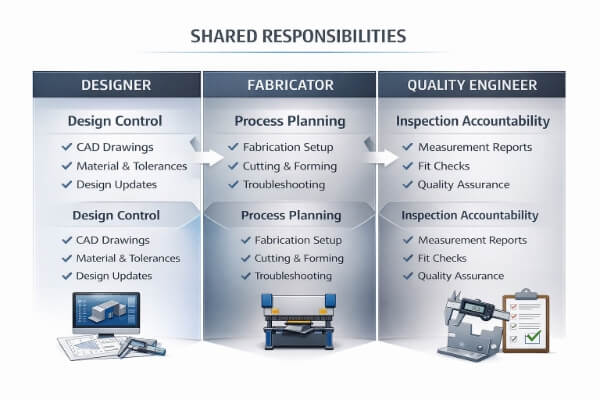State lottando per trovare soluzioni di produzione che si adattino alle vostre esigenze specifiche? Molte aziende devono affrontare questa sfida. La produzione personalizzata può risolvere questi problemi fornendo soluzioni produttive su misura. Dai progetti unici ai materiali specializzati, l'approccio giusto può snellire il vostro processo produttivo e farvi risparmiare tempo e denaro.
La produzione personalizzata consente di creare prodotti che soddisfano requisiti specifici. Garantisce flessibilità, precisione ed efficienza nella produzione. Questo approccio aiuta le aziende a risparmiare tempo, a ridurre i costi e a fornire prodotti di alta qualità che si distinguono sul mercato.
Volete saperne di più su come la produzione personalizzata può aiutare la vostra azienda? Vediamo i principali vantaggi e i modi pratici per utilizzarli.
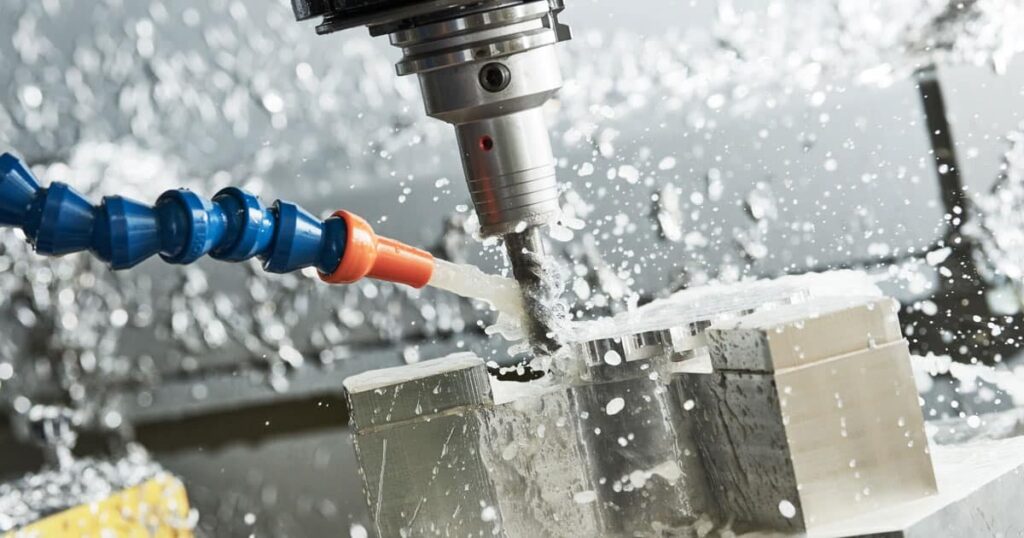
Che cos'è la produzione personalizzata?
La produzione personalizzata è il processo di creazione di prodotti su misura per requisiti specifici. Comporta la progettazione, la prototipazione e la produzione di articoli basati su specifiche esatte. Questo approccio si differenzia dalla produzione di massa, che si concentra sulla realizzazione di grandi quantità di prodotti identici.
Ad esempio, la produzione su misura può essere realizzata se avete bisogno di un pezzo con dimensioni uniche o una finitura eccezionale. Utilizza strumenti avanzati come Lavorazione CNC e taglio laser per garantire precisione e qualità.
Tipi di produzione personalizzata
La produzione personalizzata si presenta in molte forme, ognuna progettata per soddisfare esigenze specifiche. Sia che abbiate bisogno di un singolo pezzo, di un prodotto completamente assemblato o di una prototipoc'è una soluzione per voi. Vediamo le principali tipologie.
Produzione di parti personalizzate
La produzione di componenti personalizzati si concentra sulla creazione di singoli componenti su misura per le vostre specifiche. È l'ideale per le aziende che necessitano di macchinari, componenti elettronici o altre attrezzature uniche.
Ad esempio, la produzione di pezzi personalizzati può fornire se avete bisogno di un ingranaggio con dimensioni esatte o di una staffa con un rivestimento speciale. Utilizza strumenti avanzati come la lavorazione CNC e il taglio laser per garantire precisione e durata.
Assemblaggio di prodotti personalizzati
Prodotto personalizzato Assemblea consiste nel mettere insieme più parti per creare un prodotto finito. È utile per le aziende che hanno bisogno di soluzioni complete piuttosto che di singoli componenti.
Ad esempio, l'assemblaggio personalizzato assicura che tutti i componenti funzionino perfettamente insieme se si sta creando un dispositivo medico o un pezzo di elettronica di consumo. Inoltre, consente la personalizzazione, come l'aggiunta di loghi o caratteristiche speciali.
Prototipazione rapida
La prototipazione rapida è un modo veloce per creare modelli fisici dei vostri progetti. È perfetta per testare le idee e apportare miglioramenti prima della produzione su larga scala.
Utilizzando tecniche come Stampa 3DI produttori possono trasformare i vostri progetti digitali in prototipi veri e propri in pochi giorni o addirittura in poche ore. In questo modo è possibile testare la funzionalità, la vestibilità e l'aspetto senza impegnarsi in costose attrezzature.
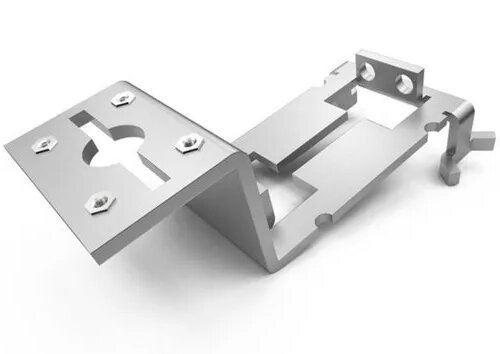
Qual è la differenza tra produzione personalizzata e produzione di massa?
Quando si decide tra produzione personalizzata e produzione di massa, è essenziale considerare le esigenze del progetto. Ogni approccio ha i suoi punti di forza ed è adatto a diversi tipi di produzione.
La produzione personalizzata è progettata per creare piccole quantità di prodotti che soddisfano requisiti specifici. Questo metodo consente una maggiore flessibilità nella progettazione. I prodotti possono essere realizzati in base a specifiche esatte, il che li rende ideali per progetti con esigenze uniche. Il processo è spesso più collaborativo: i produttori lavorano a stretto contatto con i clienti in ogni fase, dalla progettazione alla produzione.
La produzione di massa si concentra sulla creazione di grandi volumi di prodotti identici. Questo processo utilizza macchinari specializzati e linee di produzione per produrre lo stesso articolo in grandi quantità. I principali vantaggi della produzione di massa sono l'efficienza e il basso costo per unità, soprattutto quando si producono grandi quantità.
Vantaggi della produzione personalizzata
La produzione personalizzata offre diversi vantaggi che la rendono una scelta efficace per le aziende. Esploriamo questi vantaggi in dettaglio.
Soluzioni su misura per soddisfare esigenze specifiche
La produzione personalizzata si concentra sulla creazione di prodotti che si adattano esattamente alle vostre esigenze. Se avete bisogno di dimensioni uniche, materiali speciali o caratteristiche specifiche, questo approccio garantisce che il vostro prodotto sia progettato solo per voi.
Relazioni eccellenti con i clienti
La produzione personalizzata spesso implica una stretta collaborazione tra il cliente e il produttore. Quando i produttori comprendono le vostre esigenze, possono fornire un supporto e soluzioni migliori. Questa partnership porta a progetti più fluidi e a risultati migliori.
Controllo di qualità
La produzione su misura consente un controllo di qualità più rigoroso. Poiché i prodotti sono realizzati in lotti più piccoli o come pezzi unici, ogni articolo può essere ispezionato attentamente. Questo riduce il rischio di difetti e garantisce risultati di alta qualità.
Efficienza dei costi grazie all'ottimizzazione della produzione
Anche se la produzione personalizzata può sembrare più costosa all'inizio, può far risparmiare nel lungo periodo. Produrre solo ciò che serve riduce gli sprechi ed evita la sovrapproduzione.
Tempi di commercializzazione più brevi e tempi di consegna più rapidi
La produzione personalizzata può accelerare la produzione. Strumenti avanzati come la stampa 3D e la lavorazione CNC consentono una rapida prototipazione e produzione. Ciò significa che potete testare e perfezionare i vostri progetti più rapidamente, portando i prodotti sul mercato prima.
Maggiore flessibilità e adattabilità
La produzione personalizzata è altamente flessibile. È possibile modificare il design, i materiali o i metodi di produzione in base alle esigenze. La produzione personalizzata consente di adattare facilmente un prodotto in base al feedback o a nuovi requisiti.
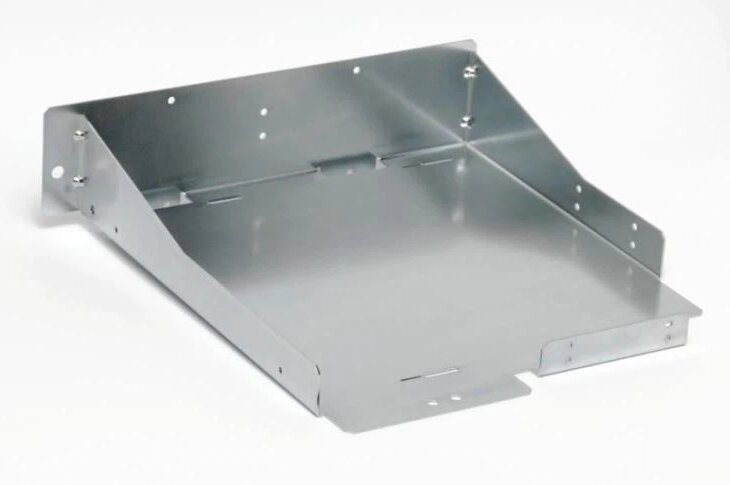
Processi coinvolti nella produzione personalizzata
La produzione personalizzata prevede diverse tecniche per creare prodotti che soddisfino esigenze specifiche. Ogni metodo ha i suoi punti di forza, a seconda del prodotto e dei requisiti di progettazione.
Produzione di additivi
La fabbricazione additiva, nota anche come stampa 3D, è un processo in cui i prodotti vengono realizzati strato per strato. Il processo inizia con un progetto digitale, spesso realizzato con un software CAD. La manifattura additiva è ideale per creare forme complesse e dettagli fini. Non richiede stampi o strumenti specializzati, il che la rende flessibile ed efficiente.
Ad esempio, produrre uno stampo per le parti in plastica può essere costoso e valido solo per un prodotto. Con la produzione additiva è possibile creare prodotti unici senza stampi. Alcuni tipi comuni di produzione additiva sono:
- Sinterizzazione laser selettiva (SLS)
- Fabbricazione a filamento fuso (FFF)
- Stereolitografia (SLA)
- Modellazione a deposizione fusa (FDM)
- Fusione a fascio di elettroni (EBM)
- Sinterizzazione laser diretta dei metalli (DMLS)
- Fusione laser selettiva (SLM)
- Getto di legante
- Poligetto
- Fusione a getto multiplo (MJF)
Produzione sottrattiva
La produzione sottrattiva rimuove il materiale da un pezzo solido per dare forma a un prodotto. Questo metodo è noto per la sua precisione. Funziona bene per creare pezzi con forme complesse o tolleranze strette.
Questo metodo produce pezzi con superfici di alta qualità. Spesso non sono necessari altri passaggi, come la rettifica o la lucidatura. Alcuni processi standard di produzione sottrattiva includono:
- Lavorazione CNC (fresatura, tornitura, perforazione, macinazione, alesatura, fresatura, noioso)
- Lavorazione a scarica elettrica (EDM)
- Taglio a getto d'acqua
- Taglio al plasma
I settori chiave che beneficiano della produzione su misura
La produzione su misura è essenziale per molti settori, in quanto offre flessibilità e precisione. Ecco alcuni dei settori chiave che traggono vantaggio dalla produzione su misura:
Industria aerospaziale
L'industria aerospaziale richiede componenti che devono soddisfare elevati standard di sicurezza e prestazioni. La produzione personalizzata consente di creare componenti specializzati come parti di motori, carrelli di atterraggio ed elementi strutturali.
Industria automobilistica
L'industria automobilistica ricorre spesso alla produzione su misura per parti e progetti specializzati. Ciò include pannelli di carrozzeria personalizzati, componenti del motore e caratteristiche interne uniche.
Elettronica e tecnologia
Nel settore dell'elettronica e della tecnologia, la produzione personalizzata crea parti specializzate per dispositivi quali schede e alloggiamenti per circuiti stampati. Questo metodo consente un'elevata precisione nella produzione di componenti piccoli e complessi.
Produzione di dispositivi medici
L'industria dei dispositivi medici richiede prodotti che soddisfino specifici standard di sicurezza, prestazioni e normative. La produzione personalizzata è fondamentale per creare dispositivi medici come strumenti chirurgici, impianti e strumenti diagnostici.
Beni di consumo e vendita al dettaglio
La produzione personalizzata è ampiamente utilizzata nei settori dei beni di consumo e della vendita al dettaglio per creare prodotti unici. Questo include tutto, dall'imballaggio personalizzato all'abbigliamento e all'arredamento specializzato.
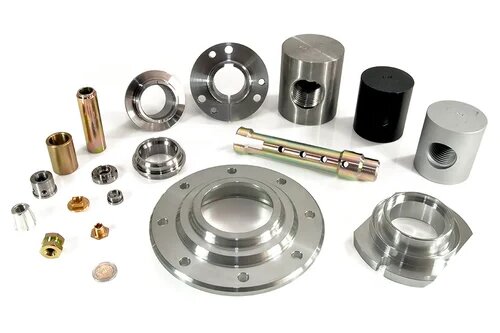
Come scegliere un produttore personalizzato?
La scelta del produttore personalizzato più adatto è fondamentale per il successo del vostro progetto. Ecco i fattori chiave da considerare al momento della scelta.
Esaminare il tipo di prodotto realizzato
Innanzitutto, verificare se il produttore è specializzato nel prodotto desiderato. I diversi produttori si concentrano su diversi settori e materiali.
Ad esempio, se avete bisogno di parti in metallo, cercate un produttore con esperienza nella fabbricazione di metalli. Se avete bisogno di componenti in plastica, cercatene uno esperto nello stampaggio di plastica o nella stampa 3D.
Considerate la reputazione del loro marchio
Esaminate la reputazione del produttore. Leggete le recensioni, chiedete referenze e verificate il loro curriculum.
Una buona reputazione è spesso sinonimo di un lavoro di qualità e di un servizio affidabile. Potete anche chiedere dei campioni dei loro lavori precedenti per vedere se soddisfano i vostri standard.
Valutare l'artigianato e la qualità dei materiali
La qualità è importante. Verificate l'artigianalità e i materiali utilizzati dal produttore. Seguono processi di controllo della qualità rigorosi? I loro prodotti sono durevoli e ben fatti?
Ad esempio, se avete bisogno di pezzi per un dispositivo medico, assicuratevi che i materiali siano sicuri e conformi agli standard industriali. Se avete bisogno di componenti per macchinari pesanti, assicuratevi che siano robusti e duraturi.
Prezzi
Confrontate i prezzi dei diversi produttori. Sebbene il costo sia essenziale, non scegliete l'opzione più economica senza considerare la qualità.
Chiedete preventivi dettagliati che illustrino i costi. Questo vi aiuterà a capire per cosa state pagando e a evitare spese nascoste.
Tempi di consegna
Verificate i tempi di consegna del produttore. Quanto tempo impiegheranno per completare il vostro ordine?
Se avete bisogno di un prodotto in tempi rapidi, cercate un produttore in grado di rispettare le scadenze più strette. Tuttavia, assicuratevi che non sacrifichi la qualità per la velocità.
Conclusione
La produzione personalizzata offre soluzioni su misura che soddisfano esigenze specifiche e rappresenta una scelta efficace per le aziende di tutti i settori. Comprendendo i processi, i vantaggi e le modalità di scelta del produttore più adatto, è possibile prendere decisioni informate per raggiungere i propri obiettivi di produzione.
Noi di Shengen siamo specializzati nella fabbricazione di metalli di alta qualità, tra cui il taglio laser, la lavorazione CNC e lo stampaggio di lamiere. Contattaci per un preventivo gratuito e per vedere come possiamo supportare il vostro progetto dal prototipo alla produzione!
Ciao, sono Kevin Lee

Negli ultimi 10 anni mi sono immerso in varie forme di lavorazione della lamiera, condividendo qui le mie esperienze in diverse officine.
Contattate

Kevin Lee
Ho oltre dieci anni di esperienza professionale nella fabbricazione di lamiere, con specializzazione nel taglio laser, nella piegatura, nella saldatura e nelle tecniche di trattamento delle superfici. In qualità di direttore tecnico di Shengen, mi impegno a risolvere sfide produttive complesse e a promuovere innovazione e qualità in ogni progetto.

